
A digital second brain works perfectly alongside the Getting Things Done (GTD) system to turn captured ideas into actionable tasks.
📚 Table of Contents
- What Is a “Second Brain” and Why Do You Need One?
- Understanding Your Brain’s Natural Rhythms (And Limits)
- The Four Essential Focus Rituals for Your Second Brain
- 1. The Startup Ritual: Priming Your Day for Clarity
- 2. The Deep Work Entry Ritual: Crossing the Threshold into Focus
- 3. The Break Hygiene Ritual: Recharging Intelligently
- 4. The Shutdown Ritual: Closing the Loops for True Rest
- Essential Mindsets: The “Thought Tools” Behind the System
- Reframe Perfectionism as “Good Enough for Now”
- Design for Less Friction: Make Focus the Easy Choice
- Script Your Reset: What to Do When You Get Derailed
- Putting It Into Practice: Two Real-World Scenarios
- Frequently Asked Questions About Building a Second Brain
- Does listening to music or white noise help or hurt focus?
- Isn’t multitasking just a more efficient way to work?
- What if I just don’t feel motivated to start?
- How do I stop my brain from racing with work thoughts in the evening?
- Notion or Evernote? Which one is better?
- How do I keep my second brain from becoming a digital junkyard?
- Your 7-Day Focus Challenge: Three Actions to Start Today

What Is a “Second Brain” and Why Do You Need One?
Does your mind ever feel like a web browser with too many tabs open? You have a great idea in the shower, but it vanishes by the time you find a pen. A task for work, a reminder to buy milk, and a snippet of an article you want to read all compete for the same mental space. This constant internal juggling is exhausting. It’s a quiet hum of overwhelm that drains your energy before you even start your most important work.
Building this digital system is one of several effective ways to reclaim your attention span in a world designed to distract you.
For those looking to connect complex ideas for long-term research, you might also explore the Zettelkasten method for structured note-taking.
This mental friction is a shared human experience in our hyper-connected world. We are constantly flooded with information, tasks, and ideas. Our brains, brilliant as they are, were not designed to be filing cabinets. They are designed for creative thinking, problem-solving, and making connections. When we force them to hold onto every little detail, we create a bottleneck that stifles our best work.
This is where the concept of a “second brain” comes in. So, what is a second brain? It is a simple, powerful idea: an external, digital system for capturing, organizing, and connecting everything that matters to you. It’s a trusted place outside of your head for your ideas, notes, projects, and inspirations. By offloading this information, you free up your biological brain to do what it does best: think.
Think of it as an extension of your own mind, but with perfect memory and infinite storage. Tools like Notion and Evernote are fantastic platforms for this, but the tool itself is less important than the system and the rituals you build around it. Learning how to build a second brain in Notion or Evernote is not about becoming a productivity guru overnight. It’s about creating a calmer, more intentional relationship with your own attention.
The core benefit is reducing your cognitive load. In simple terms, cognitive load is the amount of mental effort being used in your working memory. When you’re trying to remember a long to-do list, your cognitive load is high, leaving little room for deep thinking. A second brain drastically lowers this load. Instead of remembering, you can focus on creating, analyzing, and executing.
This guide will walk you through a practical, non-judgmental approach to building your own second brain. We will focus on simple focus rituals and powerful mindsets, not complex templates or rigid rules. The goal is to give you a system that serves you, reduces overwhelm, and helps you reclaim your capacity for deep, sustained attention.

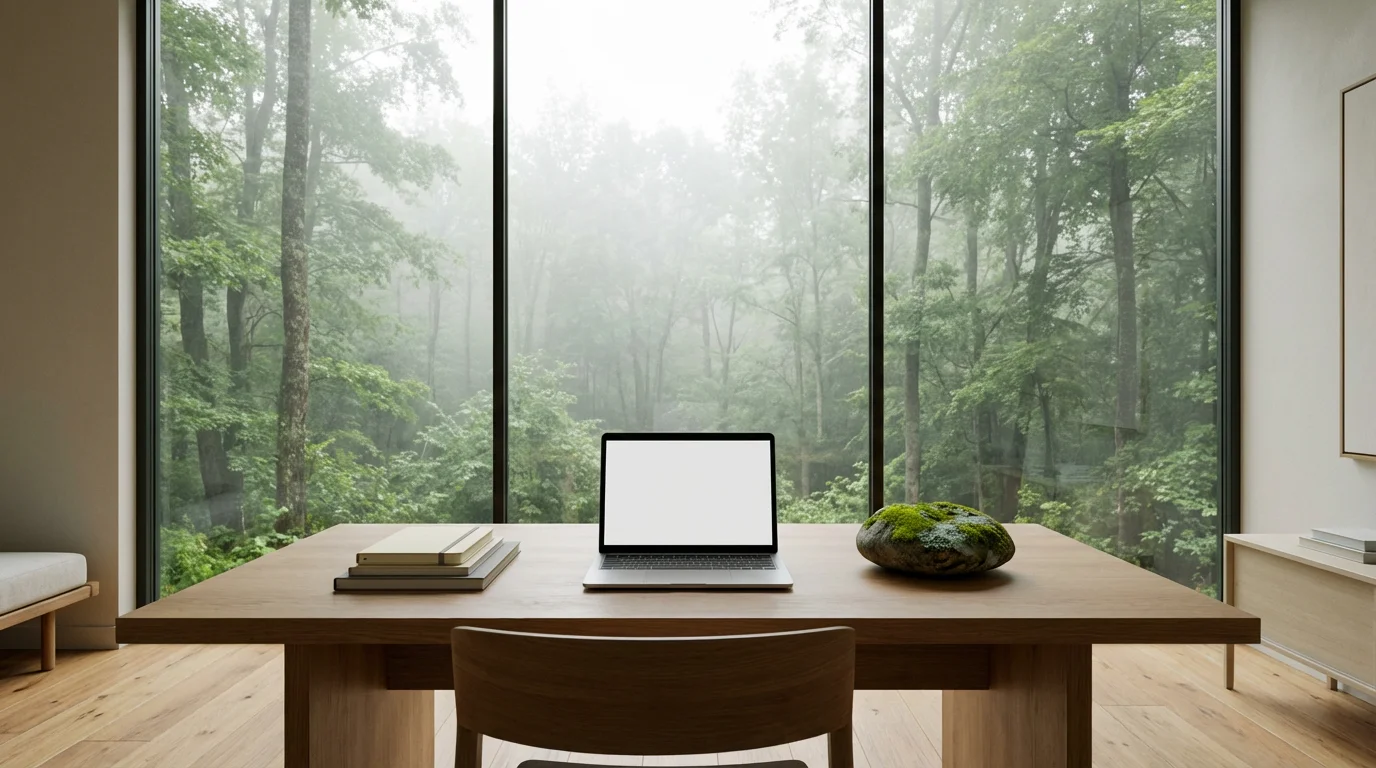
Understanding Your Brain’s Natural Rhythms (And Limits)
Before we dive into building your system in Notion or Evernote, it’s crucial to understand the organ we’re trying to support: your brain. We often treat our minds like computers, expecting constant uptime and flawless performance. But our brains are biological. They have natural rhythms, energy cycles, and distinct limitations. Working with these patterns, rather than against them, is the foundation of sustainable focus.
While mastering internal rhythms is key, it is equally important to ensure your environment isn’t sabotaging your focus through external distractions.
Your energy and attention naturally ebb and flow throughout the day. You likely have periods where you feel sharp and clear, and other times when you feel foggy and sluggish. This is completely normal. Our bodies operate on what are known as ultradian rhythms, which are cycles that last around 90 to 120 minutes. Within each cycle, we move from higher to lower states of alertness. This is why trying to force yourself to focus for four hours straight often ends in burnout and distraction. The key is to work in focused sprints that honor these natural rhythms, followed by genuine rest.
To work effectively within these cycles, we need to embrace monotasking. Monotasking, also known as single-tasking, is the practice of dedicating your full attention to one single task at a time. While our culture often glorifies multitasking, the research is clear: the human brain cannot effectively focus on multiple attention-heavy tasks at once. What we call multitasking is actually rapid, inefficient task-switching.
This brings us to a critical concept: context switching. Context switching is the mental process of shifting your attention from one unrelated task to another. Every time you pause writing a report to check a quick email, or interrupt your brainstorming to reply to a text, you are context switching. The cost is significant. It takes time and mental energy for your brain to disengage from the first task and fully load the context of the second. Psychologists refer to the lingering thoughts from the previous task as “attention residue,” which impairs your performance on the new task. Building a second brain helps minimize this by giving you a place to park distracting thoughts instead of acting on them immediately.
The ultimate goal of managing our attention is to create more opportunities for flow. A flow state, often described as being “in the zone,” is a state of deep, effortless immersion in a task. Time seems to disappear, your focus is sharp, and the work feels rewarding in itself. Flow is not something you can force, but you can create the conditions that make it more likely to appear. By reducing cognitive load with a second brain, honoring your energy rhythms, and committing to monotasking, you clear the path for flow to emerge naturally.
Understanding these principles is the first step. You’re not broken or lazy if you find it hard to focus. You’re human. The goal of your second brain is to provide the structure and support your human brain needs to thrive in a distracting world.


The Four Essential Focus Rituals for Your Second Brain
Your second brain in Notion or Evernote is the hardware. But to make it truly effective, you need an operating system. This operating system is a set of simple, consistent rituals that guide your attention throughout the day. These four rituals create structure, reduce decision fatigue, and make it easier to transition into and out of deep work. They are the practical heartbeat of your focus system.

1. The Startup Ritual: Priming Your Day for Clarity
The first 20 minutes of your workday often determine the trajectory of the next eight hours. The Startup Ritual is a deliberate, screen-light process for setting your intention before the world’s demands rush in. Instead of reacting to a flood of emails, you proactively decide what matters most. Open your second brain and look at your master task list or your “Today” view. Ask yourself: “What one or two things, if I accomplish them today, will make the biggest impact?” Identify those priorities. This simple act of clarification calms the mind and provides a clear target, preventing you from drifting into busywork. This ritual is your shield against the chaos of a reactive morning.

2. The Deep Work Entry Ritual: Crossing the Threshold into Focus
Starting a mentally demanding task is often the hardest part. Procrastination thrives in the gap between wanting to work and actually working. The Deep Work Entry Ritual is a short, repeatable sequence that bridges this gap. It’s a signal to your brain that it’s time to focus. It could be as simple as this: set a timer for 25 or 50 minutes, put your phone in another room (or at least out of sight), close all unnecessary browser tabs, and state your specific intention for the session. For example, “For the next 45 minutes, I will only work on drafting the introduction to the project proposal.” This ritual removes ambiguity and reduces the friction of getting started, making it easier to slip into a state of flow.

3. The Break Hygiene Ritual: Recharging Intelligently
How you rest is as important as how you work. Mindlessly scrolling through social media during a break is not true rest; it’s just a different kind of stimulation that leads to more context switching and mental fatigue. Good break hygiene means engaging in activities that are genuinely restorative. When your deep work timer goes off, stand up and move. Stretch your body. Look out a window to relax your eyes. Get a glass of water. Let your mind wander freely without any specific input. A five-minute break of intentional disengagement is far more recharging than a 15-minute break spent browsing the internet. This practice ensures you return to your work with renewed energy, not a depleted attention span.

4. The Shutdown Ritual: Closing the Loops for True Rest
One of the biggest challenges in modern work is the inability to mentally “log off.” Work thoughts follow us into our evenings, disrupting our rest and personal time. The Shutdown Ritual is a clear, definitive end to your workday. Take five to ten minutes to review what you accomplished. Look at your to-do list and your second brain inbox. Capture any new ideas or open loops that are still rattling around in your head. Write them down in Notion or Evernote. Decide on a tentative plan for tomorrow. Then, close all your work-related tabs and applications. Tidying your physical desk can also be a powerful closing act. Finally, say a simple phrase to yourself, like “The workday is complete.” This ritual gives your brain permission to fully disengage, preventing chronic stress and ensuring you can be fully present in your non-work life.
The 20-Minute Starter Pack
Feeling overwhelmed by all this? Try this simple experiment. For one day, commit to a 20-minute focus block. Spend 5 minutes on a Startup Ritual to pick one small task. Then, do a 25-minute Deep Work session on that task. When the timer rings, take a 5-minute restorative break. Finally, perform a 5-minute Shutdown Ritual, capturing any loose thoughts. This tiny investment can reveal the profound power of working with intention.

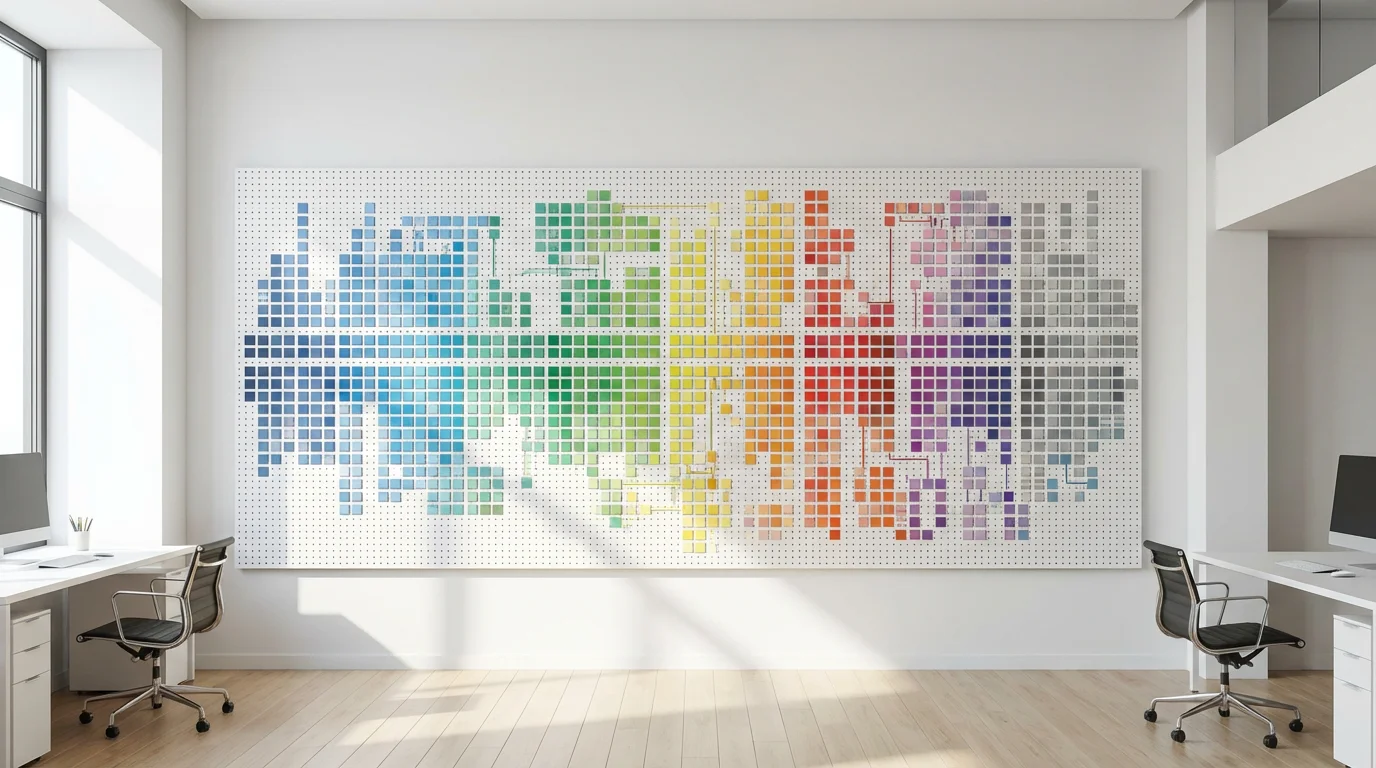
Essential Mindsets: The “Thought Tools” Behind the System
A perfect system in Notion and a disciplined set of rituals will only take you so far. The most significant breakthroughs in focus and clarity come from shifting your underlying mindset. The way you think about your work, your distractions, and your own capabilities is the software that runs on your mental hardware. Here are three crucial “thought tools” to cultivate alongside your second brain.
Adopting the right mindset helps you clearly see the difference between being busy and being productive.

Reframe Perfectionism as “Good Enough for Now”
Perfectionism is the enemy of progress. It’s the voice that tells you not to start because you don’t have the perfect plan, or not to capture an idea because it isn’t fully formed. This mindset creates immense friction and leads directly to procrastination. Your second brain is the perfect training ground for combating this. Its primary purpose is not to be a pristine, perfectly organized masterpiece. Its purpose is to be a functional, messy, and useful extension of your mind.
Adopt the mantra of “good enough for now.” When an idea strikes, capture it imperfectly. Use bullet points, fragmented sentences, or even a voice note. The goal is to get it out of your head and into your trusted system. When starting a project, create a rough outline instead of trying to write the perfect first sentence. You can always refine, edit, and organize later. Giving yourself permission to be imperfect lowers the stakes and makes it infinitely easier to start and maintain momentum.

Design for Less Friction: Make Focus the Easy Choice
We often believe that focus is a matter of pure willpower. We try to force ourselves to resist distractions through sheer grit. This is an exhausting and often losing battle. A more effective approach is to accept that willpower is a finite resource and instead design an environment where the focused choice is the easy choice. This is about reducing friction for good habits and increasing friction for bad ones.
How does this apply to your second brain? During your Shutdown Ritual, create the Notion or Evernote page you’ll need first thing in the morning. Title it and add a few bullet points. This reduces the “blank page” anxiety and makes starting tomorrow’s work almost effortless. On the flip side, increase the friction for distractions. Log out of social media accounts at the end of the day. Move distracting apps to a folder on the last screen of your phone. Turn off all non-essential notifications. Each small barrier you create gives you a moment to pause and choose your attention deliberately, rather than reacting on autopilot.
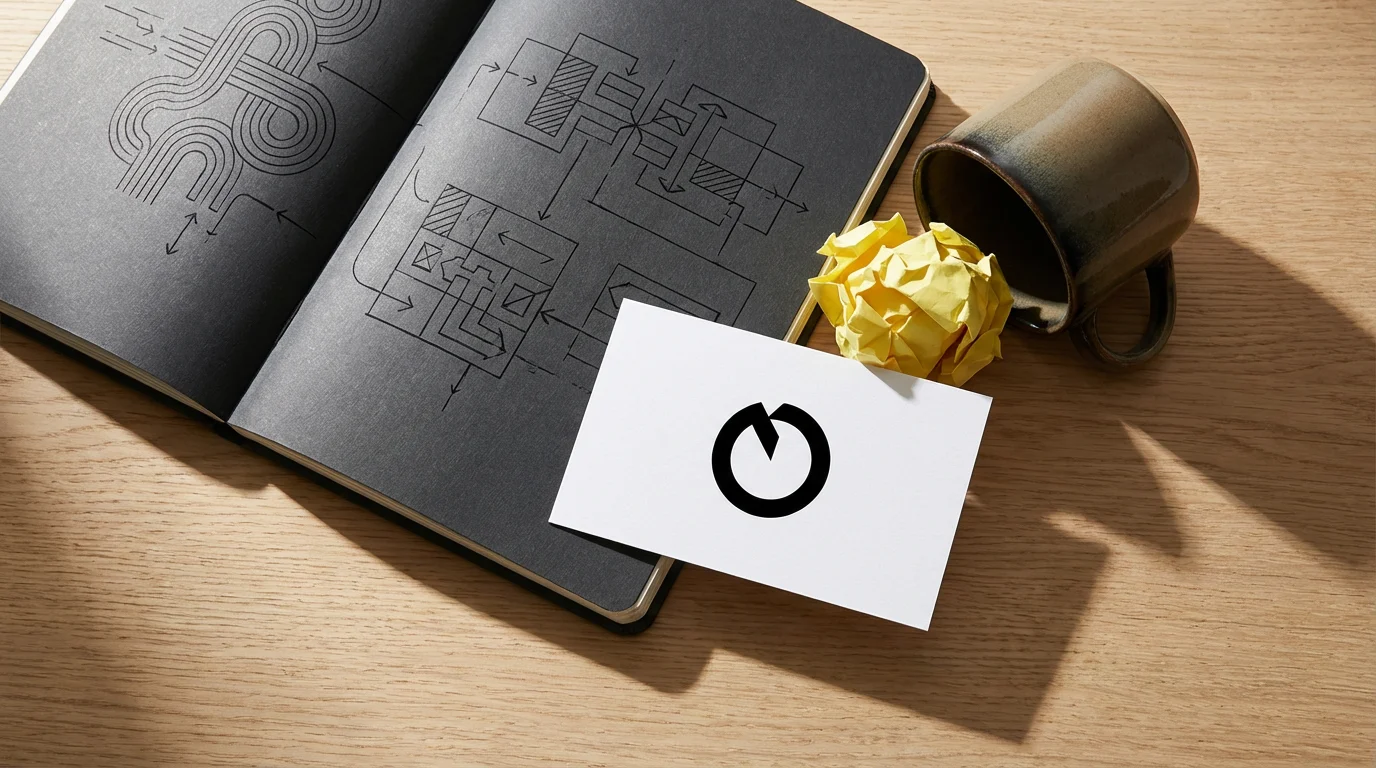
Script Your Reset: What to Do When You Get Derailed
No matter how perfect your system is, you will get distracted. A notification will slip through. An urgent thought will derail you. A colleague will interrupt you. This is not a failure; it is a certainty. The difference between a focused person and a distracted person is not that one never gets distracted. It’s the speed at which they recover.
To do this, you need a simple, non-judgmental reset script. The moment you realize you’re off-task—scrolling a news site, checking an irrelevant email—don’t beat yourself up. Shame and guilt only waste more mental energy. Instead, calmly say to yourself: “Okay, I got distracted. That’s normal.” Then, state your intention: “I am now closing this tab and returning to my report.” This two-part script acknowledges the reality without judgment and gently redirects your attention. It’s a small act of self-compassion that makes recovery quick and painless, preventing a minor distraction from spiraling into a completely derailed afternoon.
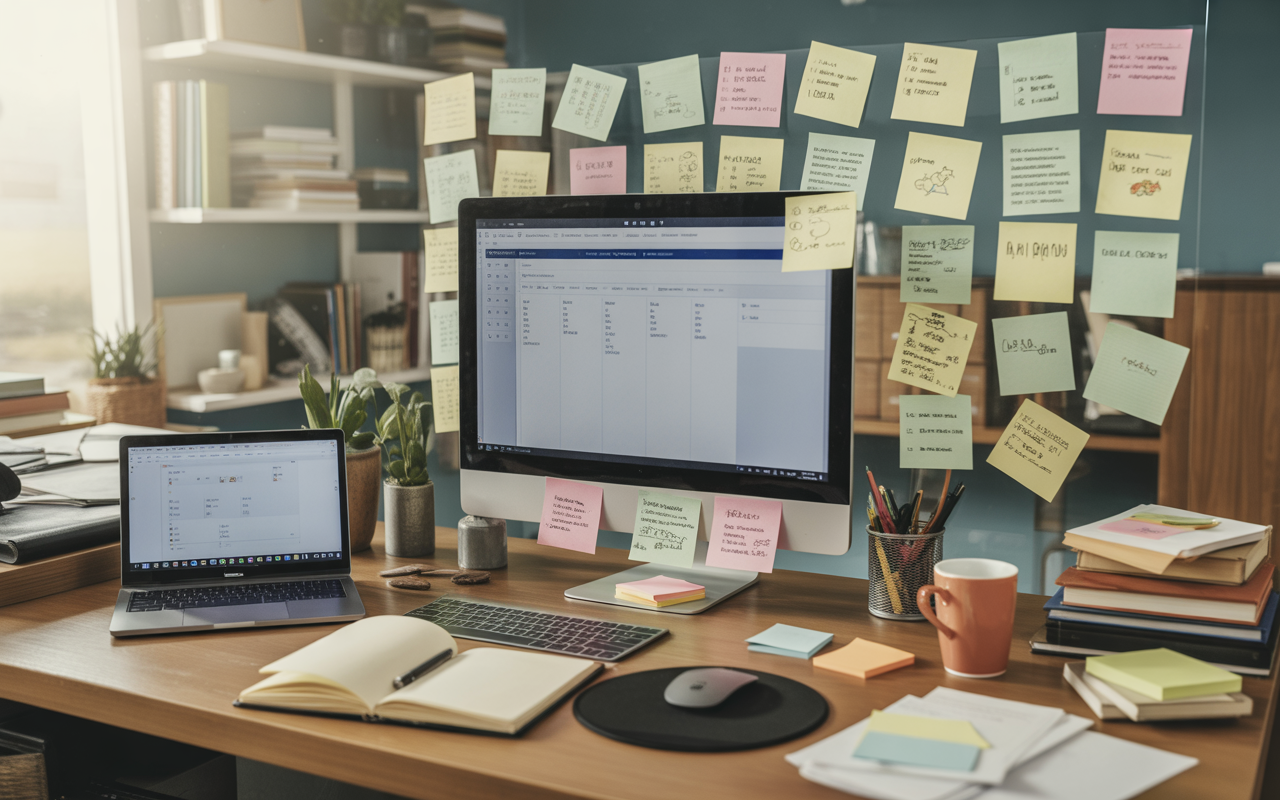
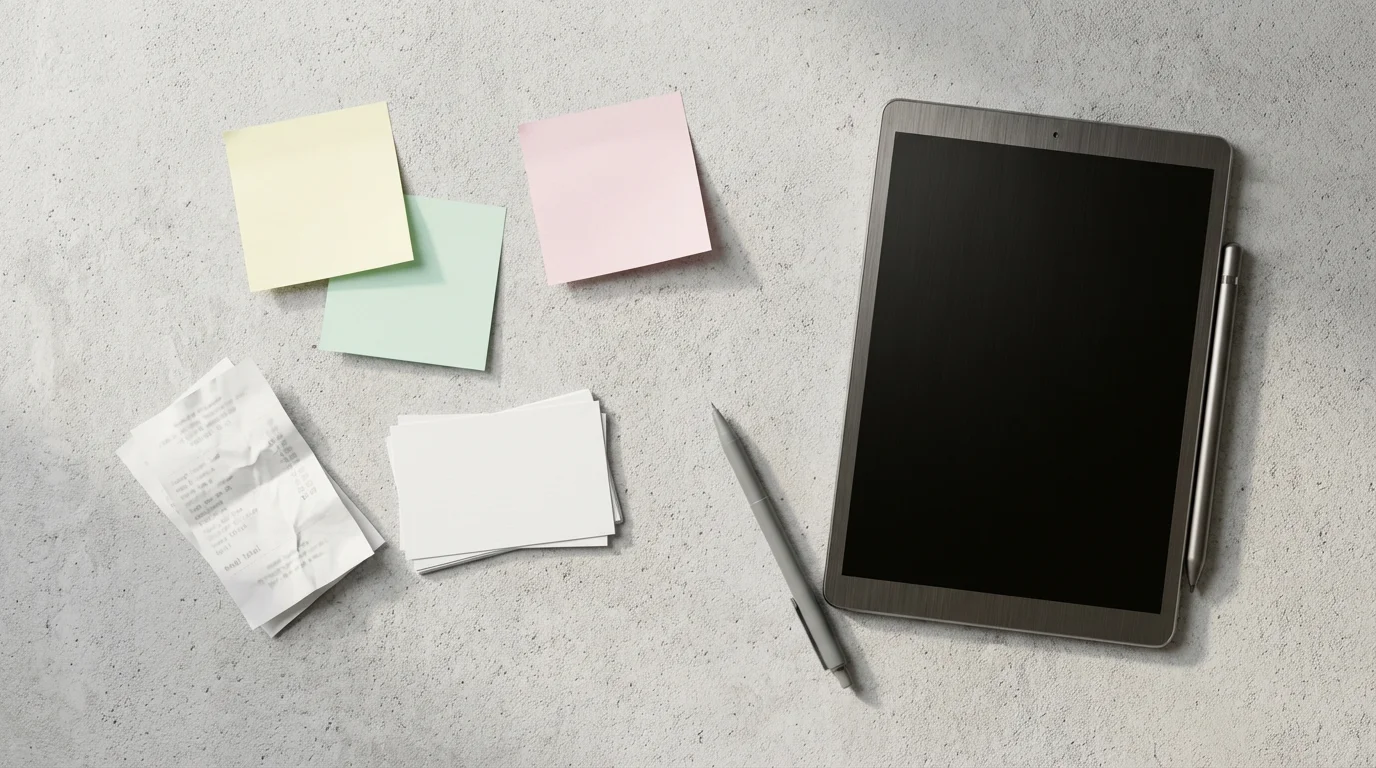
Putting It Into Practice: Two Real-World Scenarios
Theory is helpful, but seeing how these principles apply to real-life challenges makes them tangible. Let’s walk through how to use your second brain and focus rituals in two common, high-pressure scenarios. The goal isn’t to find a perfect solution, but to use the system as an anchor in the face of overwhelm.
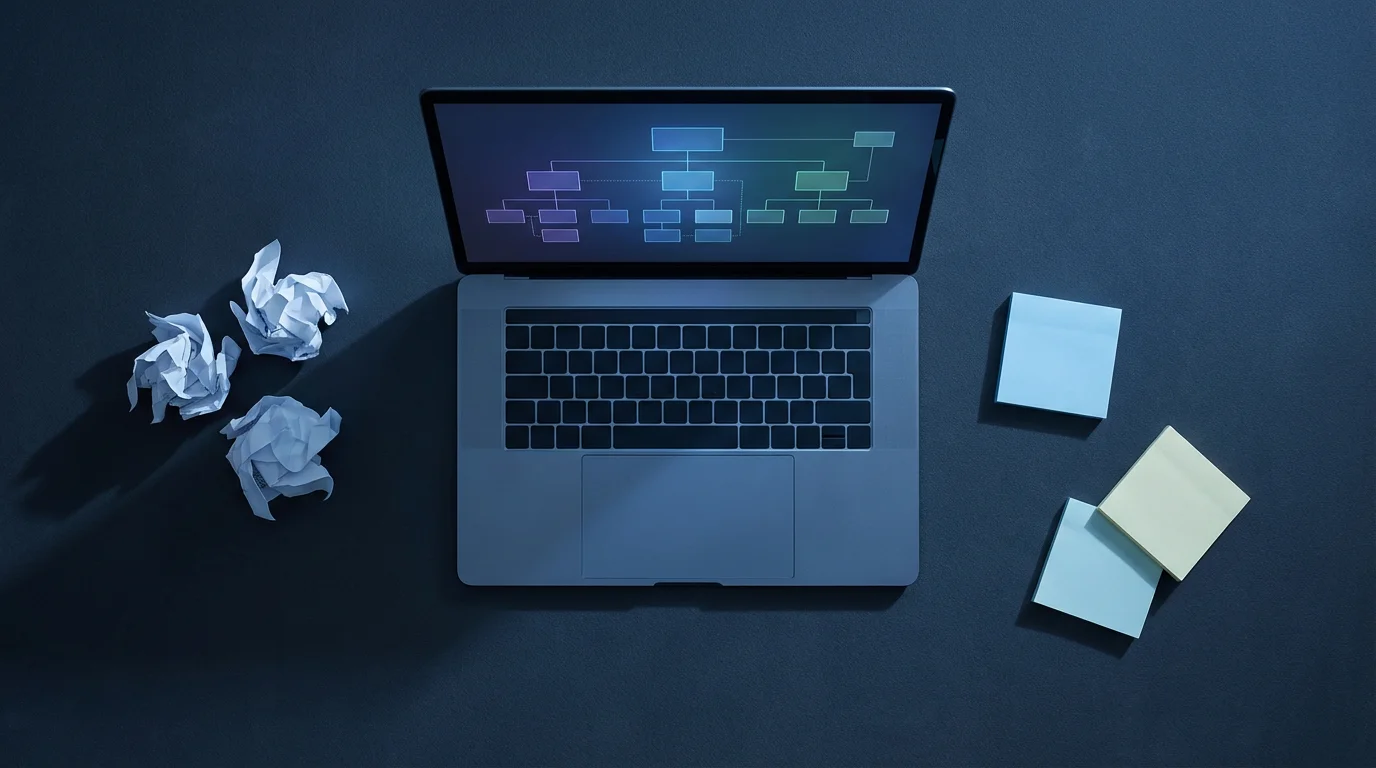
Scenario 1: The Tight Deadline Project
The Situation: You have a major project report due in 48 hours. You feel a rising sense of panic. The sheer volume of work feels paralyzing, and you don’t know where to start. Your instinct is to just dive in and work frantically for hours on end.
The Second Brain Approach: This is a moment to lean on structure, not just adrenaline. First, execute a focused Startup Ritual. Open a new page in your Notion or Evernote titled “Project Sprint.” Instead of holding the entire project in your head, perform a “brain dump.” List every single task, step, and sub-step you can think of, no matter how small. For example: “Find statistic for introduction,” “Create chart for Section 2,” “Proofread conclusion,” “Email draft to Sarah for review.”
This act of externalizing the plan immediately reduces your cognitive load and makes the project feel manageable. Now, use this list to guide your work. Apply the Deep Work Entry Ritual. Set a timer for 45 minutes and commit to monotasking on just one item from your list, like “Find statistic for introduction.” When the timer goes off, practice good Break Hygiene. Get up, walk around, and do not check your email. Repeat this cycle of focused sprints and restorative breaks. The Shutdown Ritual becomes critical here. At the end of day one, capture any remaining tasks, close everything down, and trust your system. This allows you to get the quality sleep you need to be effective on day two, rather than burning out from anxiety.

Scenario 2: The Noisy Home Environment
The Situation: You’re trying to work from home, but your environment is filled with unpredictable distractions. Family members are coming and going, the dog is barking, and household noises are constant. You feel your focus fracturing with every interruption.
The Second Brain Approach: In a chaotic environment, your second brain becomes your sanctuary of order. Start by acknowledging you cannot control everything around you. Instead, focus on what you can control: your rituals and your responses. Use your Startup Ritual to define very small, achievable goals for the day. Big, ambitious tasks are easily derailed by interruptions.
Create a dedicated “Inbox” page in your second brain. Every time a non-work thought pops into your head (“I need to schedule that appointment,” “What should we have for dinner?”), quickly capture it in your inbox instead of letting it distract you. This honors the thought without breaking your workflow. Use headphones, even with no music playing, as a social cue to others that you are trying to concentrate. Your Deep Work sprints will need to be shorter—perhaps just 15 or 20 minutes—to fit between potential interruptions. The key is to build momentum in these small windows. Most importantly, have your Reset Script ready. When an interruption inevitably occurs, attend to it, and then use your script: “Okay, that’s handled. I am now returning to my task.” Your second brain provides the anchor, reminding you exactly what you were doing and what the very next step is, making re-entry into your work much faster.
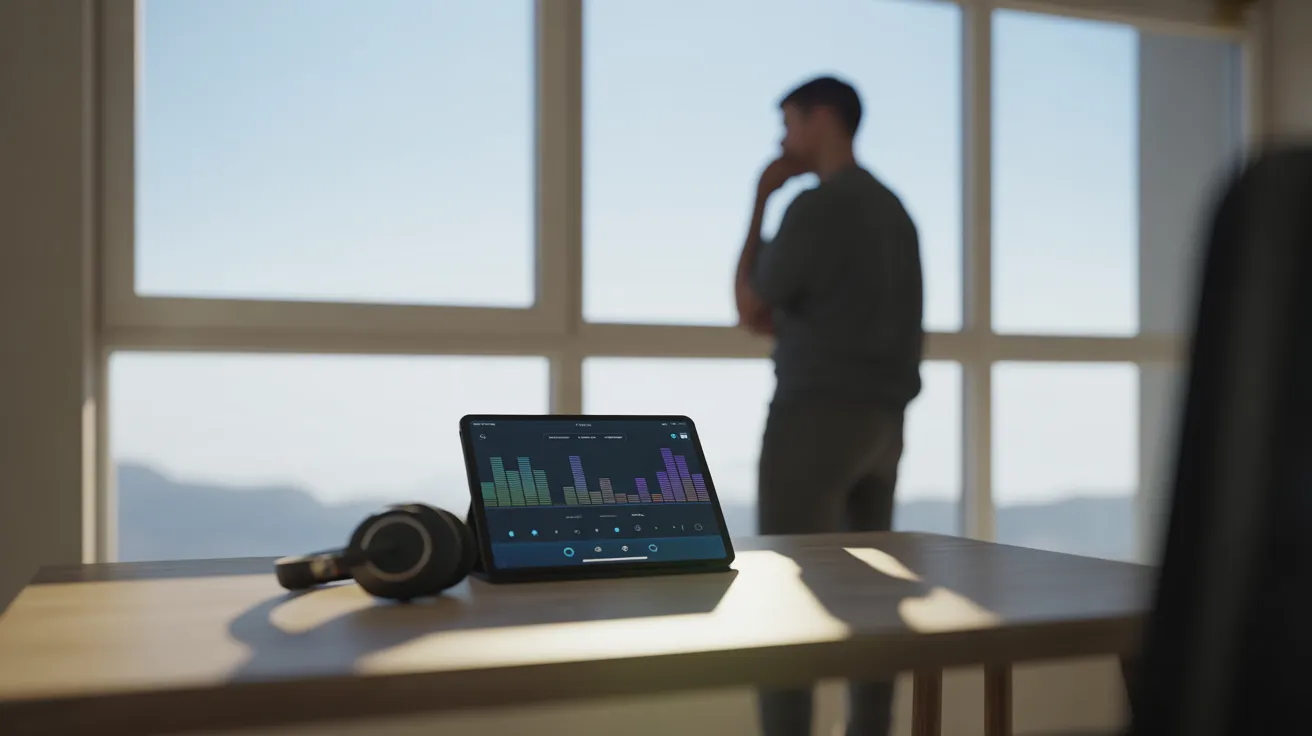
Frequently Asked Questions About Building a Second Brain
As you begin to build your second brain and implement these focus rituals, questions will naturally arise. Here are answers to some of the most common queries we hear at TheFocusedMethod.com. Remember, the goal is progress, not perfection.
Does listening to music or white noise help or hurt focus?
The answer is highly personal, but there are some general guidelines. For highly creative or linguistic tasks, such as writing or complex problem-solving, many people find silence to be most effective. Music, especially with lyrics, can compete for the same language-processing resources in your brain. However, for more repetitive or mundane tasks, familiar instrumental music or electronic tracks can help by boosting mood and blocking out external distractions. White noise, brown noise, or ambient sounds (like rain) can be very effective at masking jarring background noises in an open office or busy home, creating a consistent audio environment that helps you focus. The best approach is to experiment. Try a focus session in silence, one with ambient noise, and one with instrumental music, and see what helps you achieve a state of flow most easily.
Isn’t multitasking just a more efficient way to work?
This is one of the most persistent myths of modern productivity. Decades of research show that, with the exception of a tiny fraction of the population, humans do not truly multitask. Instead, we perform rapid context switching. As we discussed earlier, this process is highly inefficient. It increases the time it takes to complete tasks, raises the likelihood of errors, and drains your mental energy much faster than monotasking. Think of it like a chef trying to cook four complex meals at once by running between stations. It’s chaotic and the quality of each dish suffers. High-quality, insightful work requires deep, uninterrupted focus on a single objective. For more on the science behind this, you can explore resources from institutions like the American Psychological Association.
What if I just don’t feel motivated to start?
This is an incredibly common feeling. We often wait for a wave of motivation to strike before we begin a task. The secret is that motivation doesn’t precede action; it follows it. The Deep Work Entry Ritual is designed specifically to combat this inertia. The goal is not to feel motivated; the goal is to simply begin. Make the initial step ridiculously small. Commit to working for just five minutes. Open the document. Write one sentence. Once you start, no matter how small, the task becomes less intimidating. Your second brain helps by clearly defining that first small step, removing the ambiguity that often fuels procrastination. Action creates momentum, and momentum generates motivation.
How do I stop my brain from racing with work thoughts in the evening?
This is the exact problem the Shutdown Ritual is designed to solve. That feeling of a racing mind is often caused by what psychologists call the Zeigarnik effect—the tendency for our brains to ruminate on incomplete tasks. Your brain is trying to be helpful by reminding you of all your “open loops.” The Shutdown Ritual closes these loops. By taking a few minutes to capture every lingering to-do, idea, and worry in your trusted second brain system (your Notion or Evernote), you are making a promise to your brain: “This is important, it is safe, and we will deal with it tomorrow.” This act of externalizing provides a sense of completion, allowing your cognitive resources to truly log off and rest for the evening.
Notion or Evernote? Which one is better?
There is no single “best” tool. The best tool is the one you will consistently use. Evernote is often praised for its simplicity and powerful search and capture features. It’s like a digital filing cabinet—straightforward and reliable. Notion is more like a set of digital LEGOs; it’s a flexible, all-in-one workspace where you can build custom databases, project boards, and wikis. This power can be amazing, but it can also be overwhelming for beginners. Our advice: if you’re new to this, start with the tool that feels less intimidating. You can always migrate later. The principles of capturing, organizing, and using rituals are universal and matter far more than the specific platform you choose.
How do I keep my second brain from becoming a digital junkyard?
It’s a valid concern. The goal is to create a useful tool, not a digital mess that causes more anxiety. The key is to shift your mindset from perfect organization to effective retrieval. You don’t need a flawless folder structure. You just need to be able to find what you need when you need it. Start with a very simple structure. A popular one is having an “Inbox” for quick capture, a “Projects” area for active work, “Areas” for ongoing responsibilities (like Health or Finances), and an “Archive” for completed or inactive items. Then, perform a small review as part of your Startup Ritual once a week (perhaps on Mondays) to process your inbox and tidy things up. Utility trumps neatness every time.
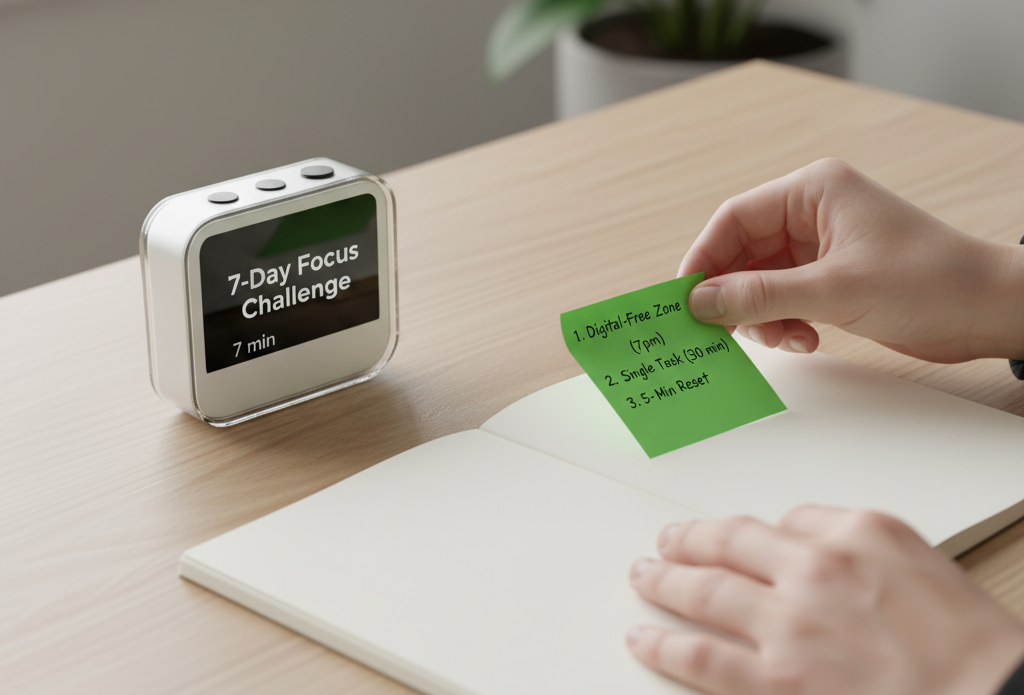
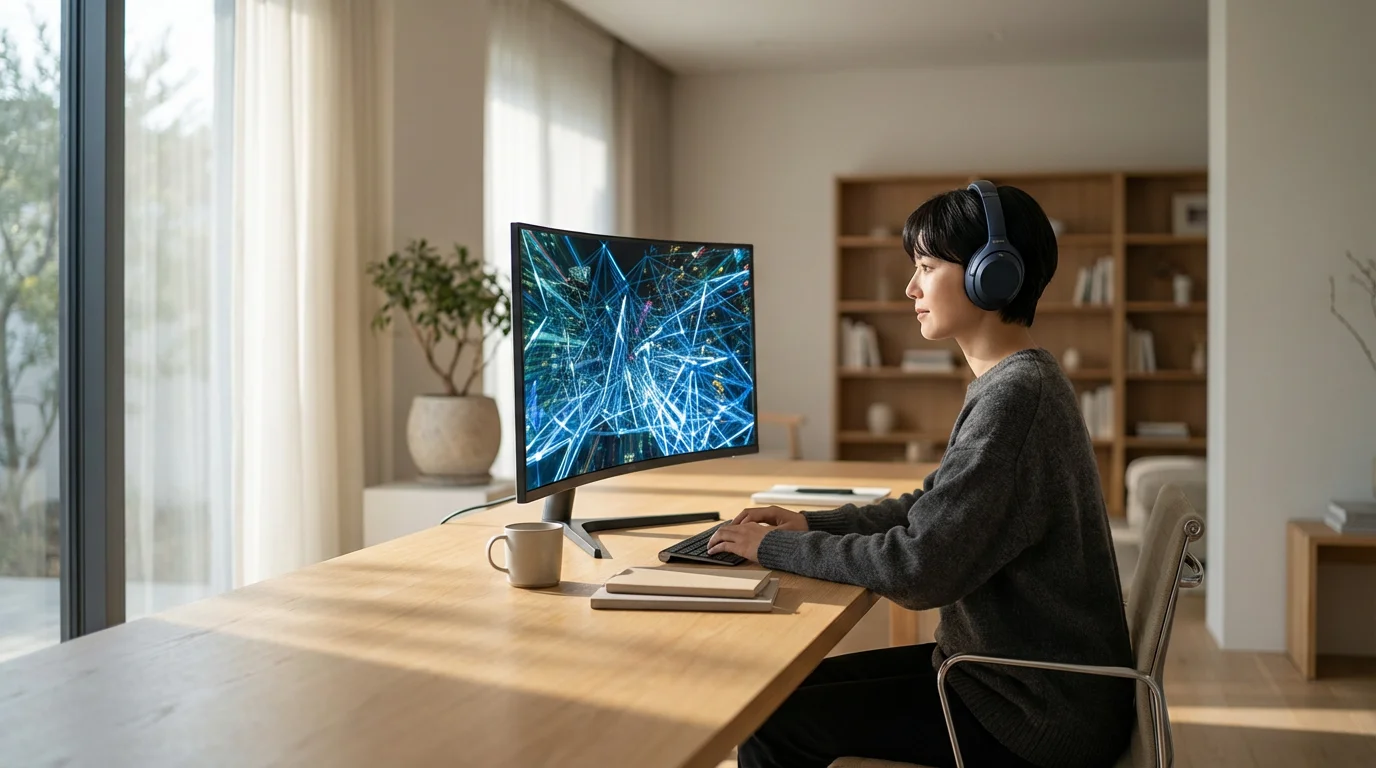
Your 7-Day Focus Challenge: Three Actions to Start Today
Reading about focus is one thing; practicing it is another. The best way to see if building a second brain can work for you is to try a small, low-stakes experiment. This isn’t about radically changing your entire life overnight. It’s about taking a few small, deliberate steps to experience a greater sense of clarity and control over your attention. Here is a simple 7-day challenge to get you started.
Action 1: Create a “Daily Inbox.”
Choose your tool, whether it’s Notion, Evernote, or even a simple notes app on your phone. Create one single new note or page and title it “Daily Inbox.” For the next seven days, your only job is to use this page as a capture tool. Every time a distracting thought, a random idea, a new to-do, or something you need to remember pops into your head while you’re trying to work, quickly open this page and jot it down. Don’t organize it. Don’t act on it. Just get it out of your head and onto the page. This single habit will begin to train your brain to trust your external system.
Action 2: Practice a 5-Minute Shutdown Ritual.
At the end of each workday for the next week, before you close your laptop, set a timer for five minutes. Open your “Daily Inbox.” Look over what you captured. You don’t need to complete these tasks. Simply acknowledge them. From that list, or from your main to-do list, identify just ONE important priority for tomorrow. Write it at the top of a new page for the next day. Then, close all your work-related browser tabs and applications. This small act of closure will help you mentally disconnect and enjoy your evening more fully.
Action 3: Attempt One Monotasking Session Per Day.
Just once each day, for the next seven days, commit to a single, 25-minute session of true monotasking. Pick the priority you identified during your Shutdown Ritual. Set a timer for 25 minutes. Put your phone on silent and place it face down, out of arm’s reach. Close all other tabs and notifications. For those 25 minutes, give your full, undivided attention to that one task. If your mind wanders, gently guide it back. When the timer goes off, you are done. That’s it. This practice will show you how much you can accomplish in a short burst of pure focus.
This challenge is about building awareness and momentum. You are laying the foundation for a calmer, more effective way of working. It’s not about perfection; it’s about practice. Notice how it feels to have an empty head. Notice the clarity that comes from a clear priority. Notice the satisfaction of uninterrupted work. You are building more than a digital filing system; you are building a new relationship with your own mind, one intentional moment at a time.
Disclaimer: The information provided in this article is for educational and informational purposes only and is not intended as a substitute for professional medical or psychological advice, diagnosis, or treatment. Always seek the advice of your physician or other qualified health provider with any questions you may have regarding a medical condition or mental health concerns.
Starting with intention is vital, especially since many professionals find that their morning routine is sabotaging their focus without them even realizing it.
To truly optimize your workspace, you should evaluate if your environment is sabotaging your focus by creating unnecessary digital or physical friction.




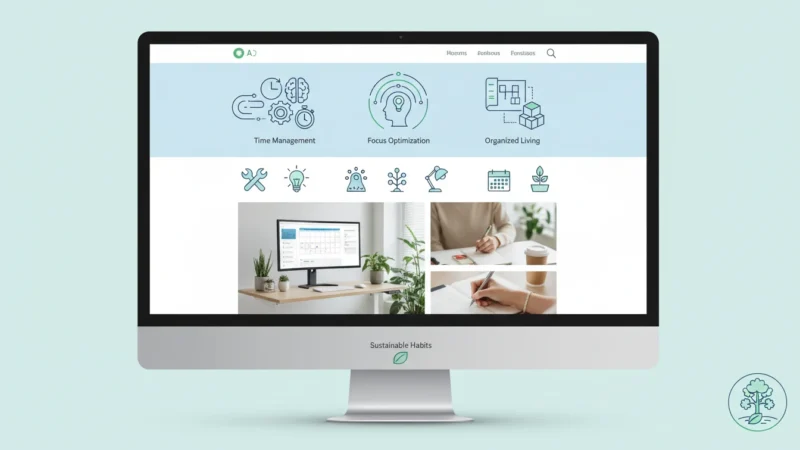
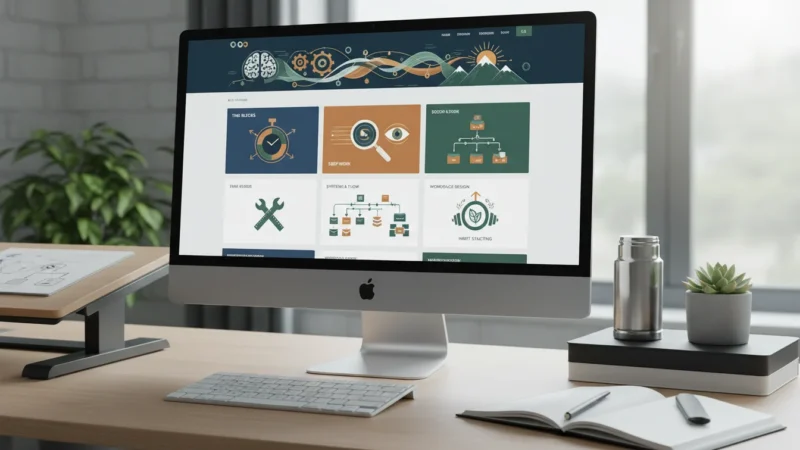

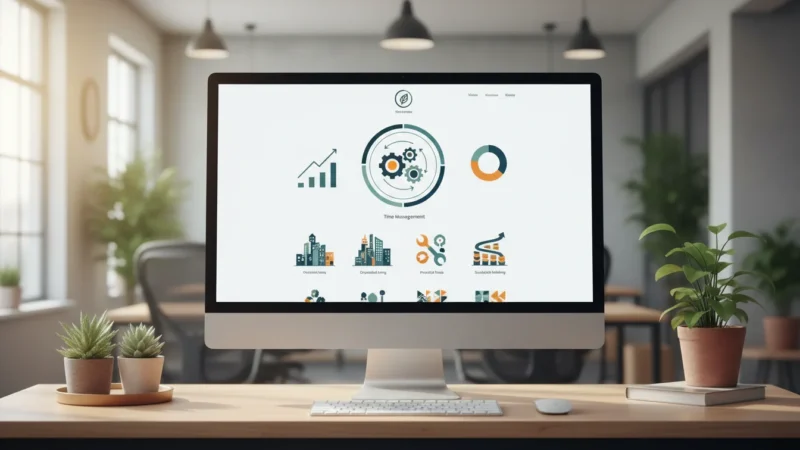

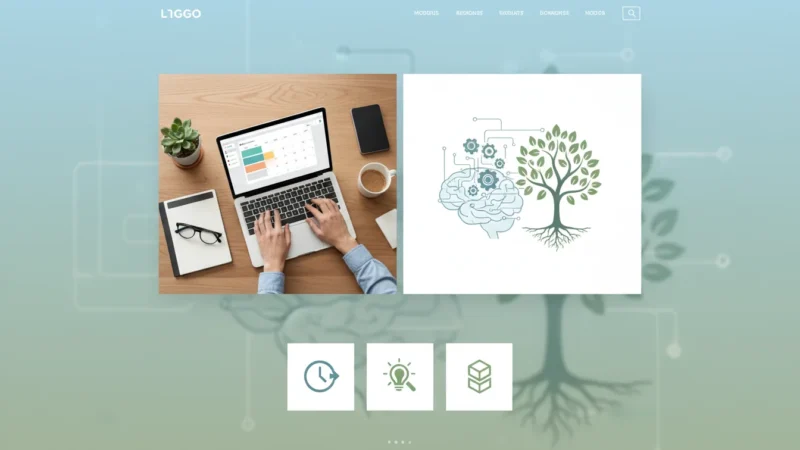
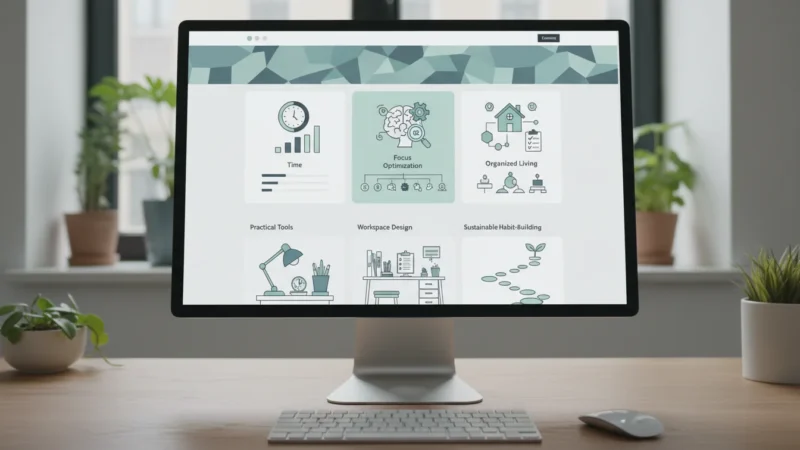
Leave a Reply